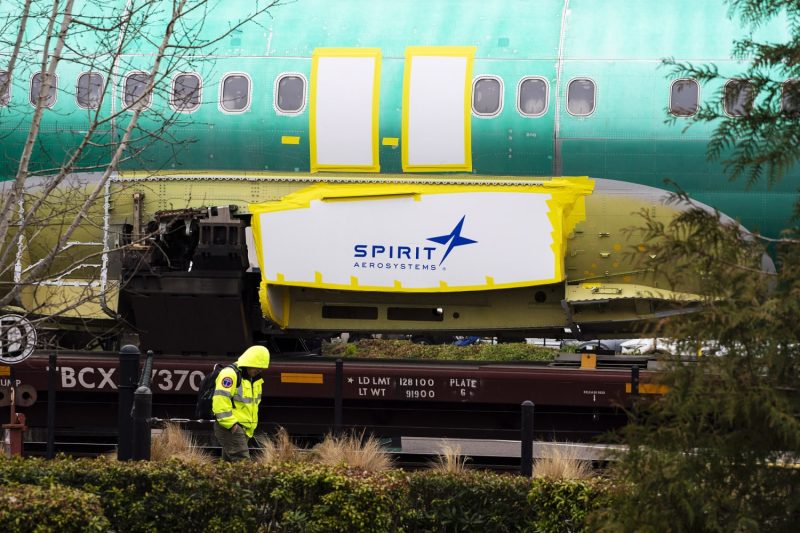Boeing in Talks to Reacquire Fuselage Maker Spirit AeroSystems in Light of Quality Defects Controversy
In recent news, aircraft manufacturer Boeing has been mired in a controversy regarding the quality of its supply chain, specifically involving fuselage maker Spirit AeroSystems. The troubled relationship between the two companies has prompted discussions of Boeing reacquiring Spirit AeroSystems to address the ongoing quality defects that have impacted Boeing’s production lines.
The spate of quality defects reported by Boeing has led to concerns about the safety and reliability of the aircraft being produced. These defects range from issues with structural integrity to manufacturing errors that could potentially compromise the performance of the aircraft. With safety being a top priority in the aviation industry, any compromise in quality control standards is a cause for alarm.
As a key supplier to Boeing, Spirit AeroSystems plays a crucial role in the production of fuselages for Boeing’s commercial aircraft. The recent quality issues have raised questions about the oversight and monitoring of suppliers in Boeing’s supply chain. Boeing’s reputation as a leading aircraft manufacturer is at stake, and the company is under pressure to address these concerns promptly and effectively.
The decision for Boeing to consider reacquiring Spirit AeroSystems is significant and could have far-reaching implications for both companies. On one hand, bringing Spirit AeroSystems back under Boeing’s direct control could allow for tighter quality control measures and more effective oversight of the manufacturing process. This move could help restore confidence in Boeing’s products and reassure customers of the company’s commitment to safety and quality.
However, the reacquisition of Spirit AeroSystems could also pose challenges, as it would require significant resources and restructuring efforts on Boeing’s part. Integrating Spirit AeroSystems back into Boeing’s operations would need careful planning and execution to ensure a smooth transition and minimal disruptions to production schedules.
The aviation industry is highly competitive, and maintaining high-quality standards is essential for the success and longevity of any aerospace company. Investors, regulators, and customers closely monitor the performance and practices of aerospace manufacturers, making it imperative for companies like Boeing to address any quality issues swiftly and decisively.
In conclusion, the discussions surrounding Boeing’s potential reacquisition of Spirit AeroSystems underscore the critical importance of quality control and oversight in the aerospace industry. By taking proactive steps to address the quality defects in its supply chain, Boeing aims to uphold its reputation for manufacturing safe and reliable aircraft. The outcome of these negotiations will undoubtedly have a significant impact on the future of both companies and the broader aviation industry as a whole.
